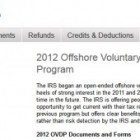
Sep 14, 2014
Managing our personal finance can be a tricky feat, especially since we are not taught how to do so in our formal education. Often young adult have no notion in managing their finance when they start earning an income for the first time. The following tips can be useful to you if you wish to start managing your income. Exercising self control One of the most important factors in managing your income is exercising control over what you purchase. Adopt patience when it comes to buying certain extras. You can wait until you have saved up the amount so that you don’t get to pay interest. Keep track of how much you are purchasing with your credit card and make it a habit to pay off the balance at the end of the month to avoid paying extra interests. Keep track of your expenses Adopt a budget and try to know what are those extras that are making your expenses sore up. It might be a certain small expense that is done regularly that could at the end of the month come up to a relatively large figure. Go through your expenses on a daily basis to track that habit and to eliminate it. Importance of an emergency saving fund Start an emergency fund by “forcing yourself” into saving up a certain amount that could have been spent unwisely. The amount saved might be small in the short run but it can really come handy when you would actually need it and will in the long run be much more useful when the amount...



